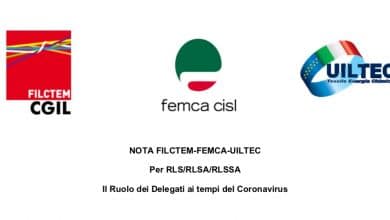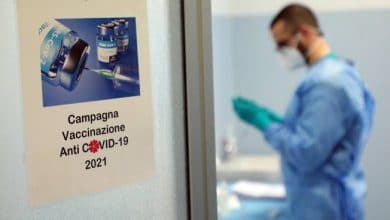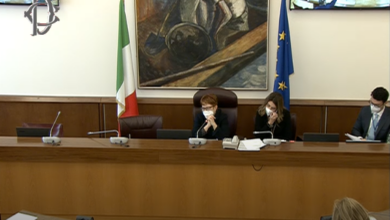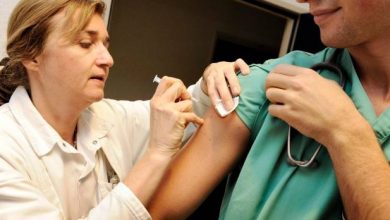
Major integration issues. The reasons are many and to be sought. First of all from an industrial point of view, companies invest less and less in scientific information and in research for new drugs to be placed on the market
Monday, 21 September 2015 Youth Opinion by Ettore Nardi – Published in News – Il Denaro

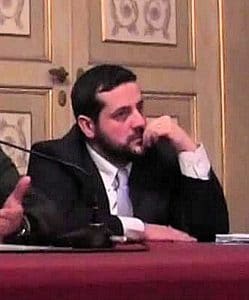 President Falconio, you are first of all a pharmacist and therefore we are interested in knowing your point of view on the data that emerged from the Censis research?
President Falconio, you are first of all a pharmacist and therefore we are interested in knowing your point of view on the data that emerged from the Censis research?
Unfortunately, the data that emerged from the report is sadly true. Nowadays, a boy who after so many efforts on university textbooks to qualify finally proposes himself in the "pharmacy world of work" has great integration problems. The reasons are many and to be found in different areas. In the first instance from an industrial point of view, companies they invest less and less in scientific information and in the search for new drugs to be introduced on the market. Unfortunately, university basic research is experiencing the situation resulting from the very few government investments on the subject for decades now. The supply of pharmacies, on the other hand, has been greatly reduced due to the decrease in the average profits of the individual businesses and in any case, in any case, the supply itself is absolutely inadequate compared to the demand which has grown disproportionately in recent decades.
As President of AGIFAR Napoli, can you tell us about the most recent activities carried out by the association?
No n the last two mandates, the executives who have followed have directed part of their efforts to collaborating with colleagues from other Italian provinces and with other professional youth representatives, aware that the world has completely changed and therefore it is unthinkable to talk about youth policies by category distinctions. In both cases, in fact, common projects were launched, including the Regional Youth Commission and the Metropolitan City and the now more than tested Young Elements Table. We have also adhered to the Agifar project in Milan, “Agifar point” and to all the initiatives put in place by the National Federation, in which I sit as a Councilor on the Board, also representing the Neapolitan requests. Among our members we have all the professionals involved in the "pharmacy world" well represented: from the collaborating pharmacist, to the pharmacist who owns a parapharmacy, passing through researchers, informants, pharmacy owners, trainers, etc. Our advice is made up of trying to give voice to almost all of these aspects of the profession.
n the last two mandates, the executives who have followed have directed part of their efforts to collaborating with colleagues from other Italian provinces and with other professional youth representatives, aware that the world has completely changed and therefore it is unthinkable to talk about youth policies by category distinctions. In both cases, in fact, common projects were launched, including the Regional Youth Commission and the Metropolitan City and the now more than tested Young Elements Table. We have also adhered to the Agifar project in Milan, “Agifar point” and to all the initiatives put in place by the National Federation, in which I sit as a Councilor on the Board, also representing the Neapolitan requests. Among our members we have all the professionals involved in the "pharmacy world" well represented: from the collaborating pharmacist, to the pharmacist who owns a parapharmacy, passing through researchers, informants, pharmacy owners, trainers, etc. Our advice is made up of trying to give voice to almost all of these aspects of the profession.
Doctor Scialò, we ask you, an expert in pharmaceutical legislation, what impact will the new rules of good distribution have?
The new rules of good distribution (NBD) will impose even more stringent quality requirements: from the need for a well-structured quality system, to the formalization of outsourcing activities; from risk analysis to the precise management of returns and complaints in the fight against counterfeiting. Such stringent requirements demonstrate the importance of correct supply chain management, its complexity and the high number of stakeholders involved.
Doctor Fusco, as an insider, moreover belonging to an age group that in 87% cases claims to have used cannabis at least once, what do you think of liberalization?
 More and more patients, especially those with cancer and ALS, are being treated today with Cannabis. Cannabis-based galenic preparations are being prepared in an increasing number of pharmacies throughout the country. The continuous discoveries on the beneficial effects of cannabis in many pathologies has brought to the fore the age-old question of the liberalization of cannabis even for purely voluptuous purposes. I believe that on cannabis there is too marked a dichotomy between those in favour, who see the plant as the panacea for all ills, and those against, who demonize it only by emphasizing the harmful effects it nevertheless gives. It would be necessary, without prejudices of any kind, to examine the pros and cons, understanding that by legalizing the voluptuary use of cannabis it would give a serious blow to those who make money on its illegal trade, but also recognizing that we are giving a further means, to young people in particular, to ruin themselves health: because if smoking a pack of cigarettes a day damages your health in the long term, smoking a "joint" could cause it immediately.
More and more patients, especially those with cancer and ALS, are being treated today with Cannabis. Cannabis-based galenic preparations are being prepared in an increasing number of pharmacies throughout the country. The continuous discoveries on the beneficial effects of cannabis in many pathologies has brought to the fore the age-old question of the liberalization of cannabis even for purely voluptuous purposes. I believe that on cannabis there is too marked a dichotomy between those in favour, who see the plant as the panacea for all ills, and those against, who demonize it only by emphasizing the harmful effects it nevertheless gives. It would be necessary, without prejudices of any kind, to examine the pros and cons, understanding that by legalizing the voluptuary use of cannabis it would give a serious blow to those who make money on its illegal trade, but also recognizing that we are giving a further means, to young people in particular, to ruin themselves health: because if smoking a pack of cigarettes a day damages your health in the long term, smoking a "joint" could cause it immediately.
Doctor Zaccariello, from the point of view of an expert connoisseur of web marketing strategy, how is the web changing pharmaceutical care in the 2.0 era?
It has been more than ten years since the internet has become accessible to everyone and is practically changing people's habits. Easy access to the web, also thanks to mobile devices, allows you to speak for free with a relative on the other side of the world, buy a plane ticket or, thanks to the giants Amazon or Ebay, allows you to find any object in a few minutes. Even in healthcare, the network is making many changes, just think of telemedicine or the recent introduction of the dematerialized prescription. Moreover, the greater online information increases the request for answers on the subject of health through the web. In fact, a recent American study attests that the doctor most consulted by pregnant women is "Dr. Google". It was precisely in this scenario that users needed to be able to find health and wellness products online, and in this way the first Online Pharmacies were born. We will see if in the coming years this phenomenon will be able to develop in Italy as well.
Doctor Savino, can you explain to us how in your opinion a young pharmacist, a health professional, can react to the constant changes of scenario in the pharmaceutical sector?
 I believe there is no professional field that has been the subject of continuous legislative interventions like ours. If we consider the last 10 years, at least 4 or 5 times the legislator has wanted to review something in the pharmaceutical world. Often these measures have followed without even an apparent technical drawing but above all without being able to perceive the much feared benefits. In addition, the financial crisis has affected the entire supply chain, from production to distribution. We have only one road ahead of us to take to face the present and the future: to be increasingly specialized and to create micro sectors of expertise in the health sector, which make us unique professional references equipped with specific skills, such as in use of supplements, both in nutrition and in sport. The need for a colleague who is an expert in economic management and personnel to support the owner in practical choices should not be underestimated by now.
I believe there is no professional field that has been the subject of continuous legislative interventions like ours. If we consider the last 10 years, at least 4 or 5 times the legislator has wanted to review something in the pharmaceutical world. Often these measures have followed without even an apparent technical drawing but above all without being able to perceive the much feared benefits. In addition, the financial crisis has affected the entire supply chain, from production to distribution. We have only one road ahead of us to take to face the present and the future: to be increasingly specialized and to create micro sectors of expertise in the health sector, which make us unique professional references equipped with specific skills, such as in use of supplements, both in nutrition and in sport. The need for a colleague who is an expert in economic management and personnel to support the owner in practical choices should not be underestimated by now.
Doctor Russo, as director of pharmacy and winner of an extraordinary competition, illustrate to our readers the situation of extraordinary competitions and the assignment of pharmaceutical offices, considered by many young pharmacists a false opportunity?
The situation is quite complex. The competitions were born years ago under the direction of the Monti government to facilitate the opening of new pharmacies and to try to guarantee entry into the world of work for many young pharmacists. In fact, the competition was organized on the basis of the evaluation of the competitors' titles only and with the particularity of associating to add up their own references and have a higher score. The premises were good, but then, as usual, darkness fell. Only Lombardy has assigned the seats. Many regions are still in the initial stage. Some regions just didn't match. In short, the extraordinary competition seems to have transformed, at the moment, from a possible opportunity for young people to yet another disappointment.
Related news: CENSIS The new professional scenarios of pharmacy graduates
Medical cannabis: "Pharmacists in the front row"
Therapeutic use of Cannabis, sen. d'Ambrosio Lettieri: «You need to know the law»

